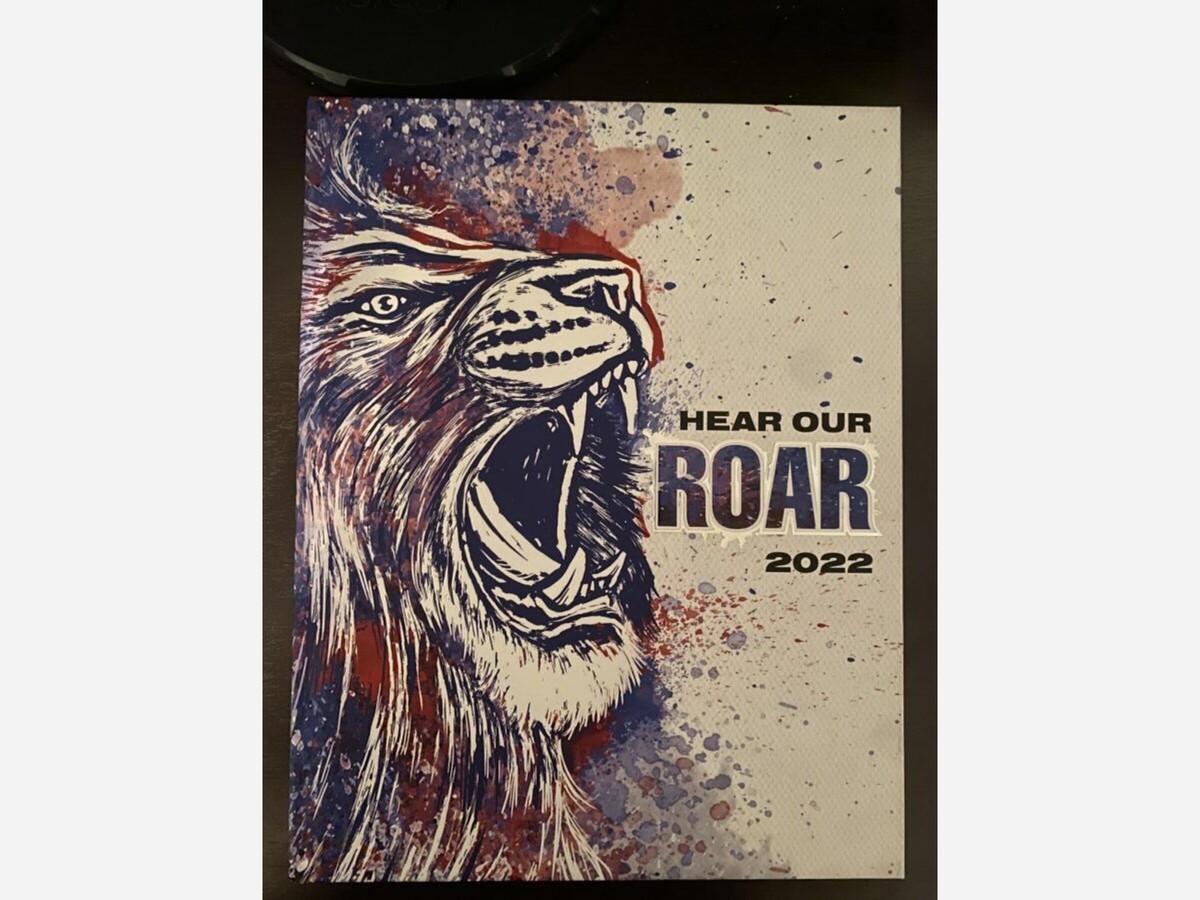Image


By: Jake Israelite and Jack Beaupre, Staff Writers
The yearbook staff works hard for the entire school year to put together a yearbook for the end of the school year. The class is run by Yearbook Advisor Ms. Meghan Condon. The class is a half-year class meaning some students only work on the yearbook for the first semester and second semester students come in halfway through the year to finish the rest of the yearbook. There have been 30 students in the class with five students taking the course for both semesters.
There are a couple of different roles when running the yearbook. First, there are the typical staff members who do writing, stories, pictures, and more. There is also a section editor, who is in charge of the layout and design of their own section and peer editing. To become a section editor, students must’ve taken the class for more than one semester or more than one year. The person who oversees all of the section editors is the editor-in-chief. The current editor in chief for the yearbook is senior Cody Mainville.
The class is available to juniors and seniors, but starting next school year, the yearbook class will be opened up to sophomores as an elective as well.
Condon says, “People should join the yearbook because it is a fun way to get involved in the school and be a part of creating the history book for the year.”
The students in the yearbook work on the yearbook digitally. This allows the students to create the school year’s “history book” anywhere at any time.
Yearbooks can also help individuals stay connected with their peers and maintain a sense of community, even after many years.
Junior Brady Sciuto says, “The yearbook helps bring back some memories of my freshman and sophomore years.”
The photos are mainly taken by the students in the yearbook class but the main events are taken by Robert Taylor Photography.
Sciuto adds, “I also look back on some of the pictures of me that are in the yearbook and it reminds me how much I’ve grown as a person.”The yearbook staff carries on the tradition of the yearbook and looks to find ways to innovate and improve the yearbook from last year. But, this aspect of the yearbook is difficult.
Mainville says, “The most challenging part of yearbook would be creating something from scratch and trying to get it to match the theme.”
The students are tasked with generating the theme and layout for the yearbook.
All the yearbook cover designs are unique and are done by a professional artist. Over the last two years, the artist has created the cover design over zoom due to Covid-19. The students come up with the design and can adjust the things as the artist creates the such as brightness and other things to try to perfect the yearbook cover.
Mainville says, “When you’re on the staff, you want everything to be perfect and it gets tough sometimes but it’s worth it.”
This yearbook strives for a level of perfection for a number of reasons.
Condon says, “The yearbook lasts forever and it is a nice physical representation of how you saw the year and shows everyone’s experience not just your own.”
The yearbook is also written, photographed, and worked on by fellow students, which add to the value of a yearbook.
Clemson.edu states, “Yearbooks preserve images, stories, and facts from each year for one specific group of people, linked by age and geographic community. Yearbook production is a significant commercial enterprise yet involves novice writers, editors, and designers.”
The one aspect that needs to be done by the students is the production and printing of the yearbook itself. The publishing is done by Jostens and shipped to Foran.
Although almost the entire yearbook is created by students, one hard part is getting students to want to be in the yearbook.
Condon says, “It is hard to get students to want to be in the yearbook, and to get them to realize it will be the main thing people look back on.”
Another thing the yearbook editors are working on is including more underclassmen so they have more incentive to purchase the yearbook.
Mainville also adds, “We try to make the yearbook special for the graduating class.”
Even if not in the senior class, the yearbook is a good purchase to reflect on the school year. The yearbook isn’t about the current, but it is mainly for looking back in a few years to a few decades and reliving some of the high school moments someone may have forgotten about.
Sciuto says, “ I always enjoy looking forward to the yearbook but like to look back in older yearbooks and remember some of the good times I once had.”